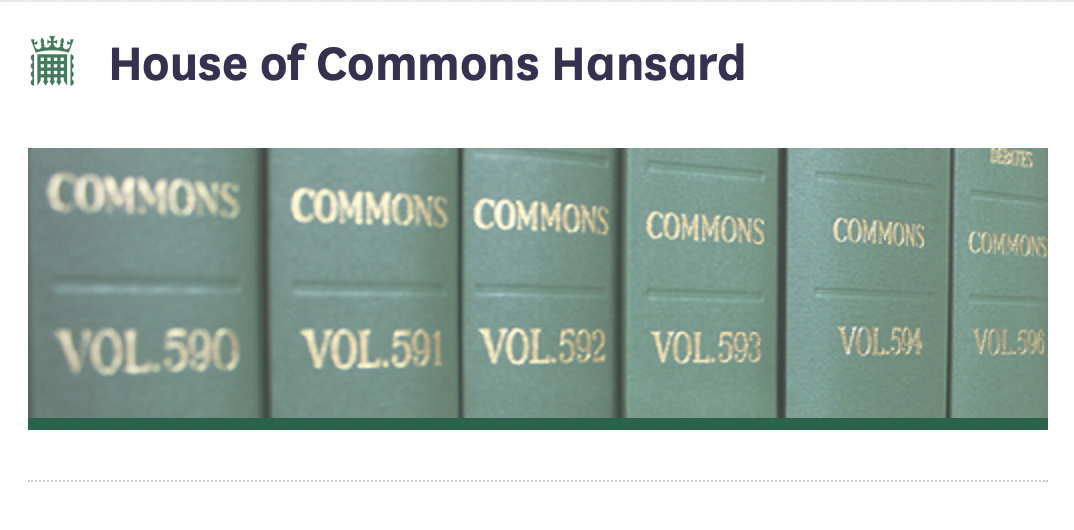John Whittingdale The Minister of State, Department for Culture, Media and Sport, Minister of State (Department for Science, Innovation and Technology)
I want first to make it clear that the Government remain committed to the future of digital terrestrial television. We absolutely accept that millions continue to rely on it. We have already legislated, as hon. Members know, to secure its continuity until at least 2034 through the renewal of the multiplex licences. Obviously, I understand that the Opposition would like to go further and give a commitment going beyond 2034, and the amendments are tabled with that purpose in mind.
I said “overwhelming majority” on Second Reading, because I do not want to be tied down to a specific figure, particularly when we are now looking 10 years ahead, but I repeat that it would be a brave Government who switched off DTT while there was still a significant number—even a small number—of people relying on it.
Stephanie Peacock Shadow Minister (Digital, Culture, Media and Sport)
Since the Minister is not willing to commit to going further than 2034, will he outline when he will make a decision on whether he will extend it past 2034? If not—this is quite important—what plans are the Department putting in place to ensure any future transition takes place effectively?
John Whittingdale The Minister of State, Department for Culture, Media and Sport, Minister of State (Department for Science, Innovation and Technology)
I am happy to say a little more about what the Department is doing. First, the hon. Member for Aberdeen North is absolutely right that broadband availability is one of the factors that would need to be taken into account. I also have ministerial responsibility at the moment for digital infrastructure, and I can confirm to her that the Government remain committed to the universal availability of gigabit broadband by 2030; if we achieve that target, that is one factor that will have been met. There is also the availability of low-cost tariffs, and I agree with her about the importance of those.
The hon. Lady also talked about resilience. Resilience is important, but it is worth bearing in mind that the Bilsdale transmitter fire was not that long ago—that took out DTT for a significant number of people for quite a few months. Every technology is subject to occasional risk, and that was a rather more dramatic one.
On getting vital messaging across, I gently say to Opposition Committee members that radio is, of course, available through a variety of different technologies as well as television.
Stephanie Peacock Shadow Minister (Digital, Culture, Media and Sport)
The fire that the Minister referenced really outlined how important linear television is to many parts of the country. Actually, the further north we go, the more communities rely on it. In that particular case, I think that a prison was affected as well as a number of older people. It is a good example of how important terrestrial TV still is to many in the country.
John Whittingdale The Minister of State, Department for Culture, Media and Sport, Minister of State (Department for Science, Innovation and Technology)
We completely recognise that terrestrial TV is important to many in the country. I was in my second incarnation as a Minister at the time of the Bilsdale fire, and I talked to Arqiva about the importance of restoring services as rapidly as possible. A very large number of people were left without the ability to access information, entertainment and all the things that people rely on television to provide.
Looking forward, as hon. Members may be aware the Secretary of State recently announced that the Department is going to carry out a new programme of work on the future of television distribution. That includes a six-month research project working with a consortium led by the University of Exeter, looking at changing viewing habits and technologies. We have also asked Ofcom to undertake an early review on market changes that may affect the future of content distribution. I am very happy to keep the House updated on those. That will be looking at all the various factors that would need to be taken into account.
I make one final point about amendment 37. It puts a particular requirement on channel 3 licensees to use particular standards for compression technology. As with all technologies, the standards for television distribution will change over time. We want to ensure that there remains flexibility, so restricting channel 3 to a particular use of one technology would be severely limiting and actually be contrary to precisely what the Bill is designed to achieve.
Kirsty Blackman Shadow SNP Spokesperson (Cabinet Office)
On what the Minister just said about the report on the future of television provision being done and the timeline for decision making, does he recognise my point that the degradation of the technology is possible if the Government do not make fairly early decisions—I am not talking about in the next three months—on whether they are going to extend it beyond 2034? Does he understand the importance of making a decision in fairly short order to ensure that broadcasters, for example in Arqiva, keep the technology running so that it stays viable beyond 2034 if necessary?
John Whittingdale The Minister of State, Department for Culture, Media and Sport, Minister of State (Department for Science, Innovation and Technology)
As I say, we are committed to keeping the House updated about the research. I recognise the point, and my own expectation is that DTT will be around for quite some time to come. For the reasons I have explained, I am not able to accept the amendments. I hope that the Opposition will withdraw them.
Ordered, That the debate be now adjourned.—(Mike Wood.)
Adjourned till this day at Two o’clock.
TO READ THE WHOLE DEBATE FOLLOW THESE LINKS:
https://www.theyworkforyou.com/pbc/2023-24/Media_Bill/01-0_2023-12-05a.28.2?s=speaker%3A10632#g32.0
https://www.theyworkforyou.com/pbc/2023-24/Media_Bill/02-0_2023-12-05a.35.2?s=speaker%3A10632#g35.10
